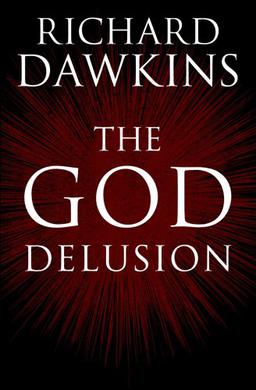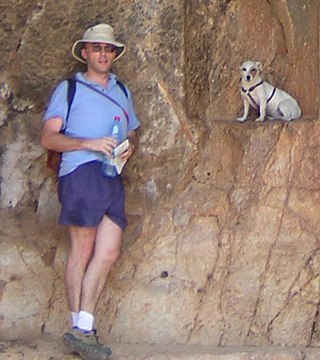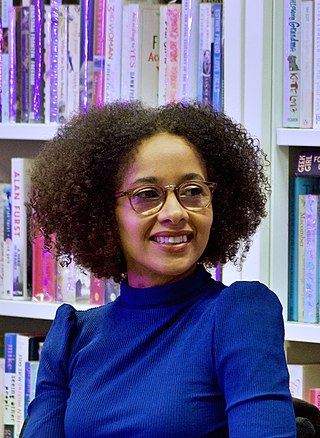Related Research Articles

Eric Arthur Blair was a British novelist, poet, essayist, journalist, and critic who wrote under the pen name of George Orwell, a name inspired by his favourite place River Orwell. His work is characterised by lucid prose, social criticism, opposition to all totalitarianism, and support of democratic socialism.
A meme is an idea, behavior, or style that spreads by means of imitation from person to person within a culture and often carries symbolic meaning representing a particular phenomenon or theme. A meme acts as a unit for carrying cultural ideas, symbols, or practices, that can be transmitted from one mind to another through writing, speech, gestures, rituals, or other imitable phenomena with a mimicked theme. Supporters of the concept regard memes as cultural analogues to genes in that they self-replicate, mutate, and respond to selective pressures. In popular language, a meme may refer to an Internet meme, typically an image, that is remixed, copied, and circulated in a shared cultural experience online.
Memetics is a theory of the evolution of culture based on Darwinian principles with the meme as the unit of culture. The term "meme" was coined by biologist Richard Dawkins in his 1976 book The Selfish Gene, to illustrate the principle that he later called "Universal Darwinism". All evolutionary processes depend on information being copied, varied, and selected, a process also known as variation with selective retention. The information that is copied is called the replicator, and genes are the replicator for biological evolution. Dawkins proposed that the same process drives cultural evolution, and he called this second replicator the "meme". He gave as examples, tunes, catchphrases, fashions, and technologies. Like genes, memes are selfish replicators and have causal efficacy; in other words, their properties influence their chances of being copied and passed on. Some succeed because they are valuable or useful to their human hosts while others are more like viruses.

Richard Dawkins is a British evolutionary biologist, zoologist, and author. He is an emeritus fellow of New College, Oxford, and was Professor for Public Understanding of Science in the University of Oxford from 1995 to 2008. His 1976 book The Selfish Gene popularised the gene-centred view of evolution, as well as coining the term meme. Dawkins has won several academic and writing awards.

David Stephen Mitchell is an English novelist, television writer, and screenwriter.
David John Taylor is a British critic, novelist and biographer, who was born and raised in Norfolk.

Rana Dasgupta is a British novelist and essayist. He grew up in Cambridge, England, and studied at Balliol College, Oxford, the Conservatoire Darius Milhaud in Aix-en-Provence, and, as a Fulbright Scholar, the University of Wisconsin–Madison. In 2010 The Daily Telegraph called him one of Britain's best novelists under 40. In 2014, Le Monde named him one of 70 people who are making the world of tomorrow. Among the prizes won by Dasgupta's works are the Commonwealth Prize and the Ryszard Kapuściński Award.

Andrew O'Hagan is a Scottish novelist and non-fiction author. Three of his novels have been nominated for the Booker Prize and he has won several awards, including the Los Angeles Times Book Prize.

Samuel Benjamin Harris is an American philosopher, neuroscientist, author, and podcast host. His work touches on a range of topics, including rationality, religion, ethics, free will, neuroscience, meditation, psychedelics, philosophy of mind, politics, terrorism, and artificial intelligence. Harris came to prominence for his criticism of religion, and is known as one of the "Four Horsemen" of New Atheism, along with Richard Dawkins, Christopher Hitchens, and Daniel Dennett.

John Carey, is a British literary critic, and post-retirement (2002) emeritus Merton Professor of English Literature at the University of Oxford. He is known for his anti-elitist views on high culture, as expounded in several books. He has twice chaired the Booker Prize committee, in 1982 and 2003, and chaired the judging panel for the first Man Booker International Prize in 2005.
The Orwell Prize is a British prize for political writing. The Prize is awarded by The Orwell Foundation, an independent charity governed by a board of trustees. Four prizes are awarded each year: one each for a fiction and non-fiction book on politics, one for journalism and one for "Exposing Britain's Social Evils" ; between 2009 and 2012, a fifth prize was awarded for blogging. In each case, the winner is the short-listed entry which comes closest to George Orwell's own ambition to "make political writing into an art".

The God Delusion is a 2006 book by British evolutionary biologist and ethologist Richard Dawkins. In The God Delusion, Dawkins contends that a supernatural creator, God, almost certainly does not exist, and that belief in a personal god qualifies as a delusion, which he defines as a persistent false belief held in the face of strong contradictory evidence. He is sympathetic to Robert Pirsig's statement in Lila (1991) that "when one person suffers from a delusion it is called insanity. When many people suffer from a delusion it is called religion." In the book, Dawkins explores the relationship between religion and morality, providing examples that discuss the possibility of morality existing independently of religion and suggesting alternative explanations for the origins of both religion and morality.

Edward Docx is a British writer.
Jason Cowley is a journalist, magazine editor and writer. After working at the New Statesman, he became the editor of Granta in September 2007, while also remaining a writer on The Observer. He returned to the New Statesman as its editor in September 2008.

Johann Eduard Hari is a Scottish writer and journalist who wrote for The Independent and The Huffington Post. In 2011, Hari was suspended from The Independent and later resigned, after admitting to plagiarism and fabrications dating back to 2001 and making malicious edits to the Wikipedia pages of journalists who had criticised his conduct. He has since written books on the topics of depression, the war on drugs, the effect of technology on attention span, and anti-obesity medication, which have attracted criticism for inaccuracies and misrepresentation.

Tim Butcher is an English author, broadcaster and journalist. He is the author of Blood River (2007), Chasing the Devil (2010) and The Trigger (2014), travel books blending contemporary adventure with history.
The term New Atheism describes the positions of some atheist academics, writers, scientists, and philosophers of the 20th and 21st centuries. New Atheism advocates the view that superstition, religion, and irrationalism should not simply be tolerated. Instead, they advocate the antitheist view that the various forms of theism should be criticised, countered, examined, and challenged by rational argument, especially when they exert strong influence on the broader society, such as in government, education, and politics. Critics have characterised New Atheism as "secular fundamentalism" or "fundamentalist atheism". Major figures of New Atheism include Richard Dawkins, Sam Harris, Christopher Hitchens, and Daniel Dennett, collectively referred to as the "Four Horsemen" of the movement, as well as Ayaan Hirsi Ali, until her conversion to Christianity in 2023.
Francis Spufford FRSL is an English author and teacher of writing whose career has seen him shift gradually from non-fiction to fiction. His first novel Golden Hill received critical acclaim and numerous prizes including the Costa Book Award for a first novel, the Desmond Elliott Prize and the Ondaatje Prize. In 2007 he was elected a Fellow of the Royal Society of Literature.
Russell Barnes is a British television producer and director, known primarily for documentaries about science and contemporary history. He was educated at Bedford Modern School and studied history at Christ's College, Cambridge.

Diana Omo Evans FRSL is a British novelist, journalist and critic who was born and lives in London. Evans has written four full-length novels. Her first novel, 26a, published in 2005, won the Orange Award for New Writers, the Betty Trask Award and the deciBel Writer of the Year award. Her third novel Ordinary People was shortlisted for the 2019 Women's Prize for Fiction and won the 2019 South Bank Sky Arts Award for Literature. A House for Alice was published in 2023.
References
- ↑ "Sweden's magic, its women - and its fish". The Spectator . Retrieved 27 April 2013.
- ↑ "Third Annual Templeton-Cambridge Fellowships" (PDF). Archived from the original (PDF) on 2011-04-10. Retrieved 2016-02-08.
- ↑ "Third Annual Temoleton–Cambridge Fellowships" (PDF). Archived from the original (PDF) on 2009-12-11. Retrieved 2016-02-08.
- ↑ "Religion & Spirituality".
- ↑ Rausing, Sigrid (June 29, 2009). "The death of a dream". New Statesman .
- ↑ "At 96, my mother is one of the last surviving Bletchley Park codebreakers | Andrew Brown". TheGuardian.com . 28 March 2014.
- 1 2 "Help thou mine unbelief".
- ↑ Brown, Andrew (1 April 2013). "How do churches get new bums on seats? Get rid of the boring old ones". The Guardian.
- ↑ "The bizarre – and costly – cult of Richard Dawkins". 16 August 2014.
- ↑ Brown, Andrew (8 July 2009). "Serious objections to memes". The Guardian.
- ↑ Gabora, L.; Brown, A. (1 January 1999). "Susan Blackmore, The Meme Machine". Journal of Consciousness Studies. 6 (5): 77–85 – via PhilPapers.
- ↑ Brown, Andrew (8 August 2009). "Sam Harris, torture, quotation". The Guardian.
- ↑ Brown, Andrew (25 June 2015). "Wikipedia editors are a dying breed. The reason? Mobile". The Guardian.
- ↑ "A Policeman's Lot". Evening Times . Feb 12, 1988. Retrieved 27 April 2013.
- ↑ "Rediscovering the gene genius". Sunday Herald . Apr 4, 1999. Archived from the original on June 16, 2013. Retrieved 27 April 2013.
- ↑ "In the Beginning Was the Worm by Andrew Brown". New Scientist. 22 February 2003. Retrieved 27 April 2013.
- ↑ Edgar, Lois (2006). "In the Beginning Was the Worm: Finding the Secrets of Life in a Tiny Hermaphrodite (Book-Review)". The Quarterly Review of Biology . 81: 49–50. doi:10.1086/503924.
- ↑ "Fishing in Utopia by Andrew Brown". London Evening Standard . Retrieved 27 April 2013.
- ↑ "Fishing in Utopia, By Andrew Brown - Reviews, Books". The Independent . Jul 27, 2008.
- ↑ Oscarson, Christopher (Spring 2010). "Andrew Brown. Fishing in Utopia: Sweden and the Future that Disappeared.(Book review)". Scandinavian Studies . 82 (1): 99. doi:10.2307/40920897. JSTOR 40920897. S2CID 254481073.
- ↑ Bloomsbury.com. "That Was The Church That Was".
- ↑ "Journalist receives first European Religion award". Christian Science Monitor. October 2, 1995. Archived from the original on March 3, 2016. Retrieved 27 April 2013.
- ↑ "Record entries for science prize". BBC. 10 May 2004. Retrieved 27 April 2013.
- ↑ "Debut book wins Dolman Travel Book award". Telegraph. Retrieved 27 April 2013.
- ↑ "Orwell Prize 2009". Granta. Archived from the original on 2013-05-22. Retrieved 27 April 2013.
- ↑ "Sverigeskildring fick Orwellpris". Svenska Dagbladet . Retrieved 27 April 2013.